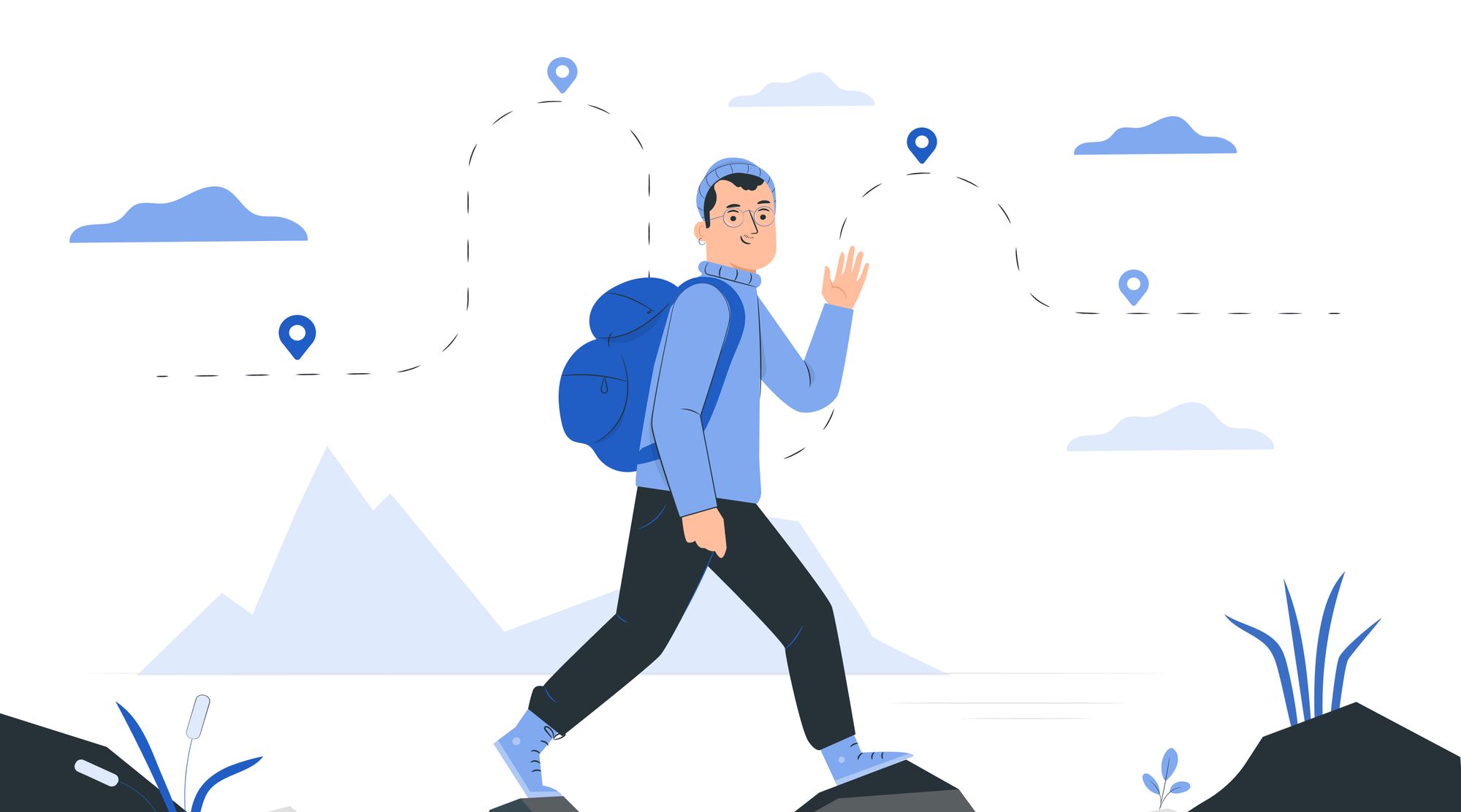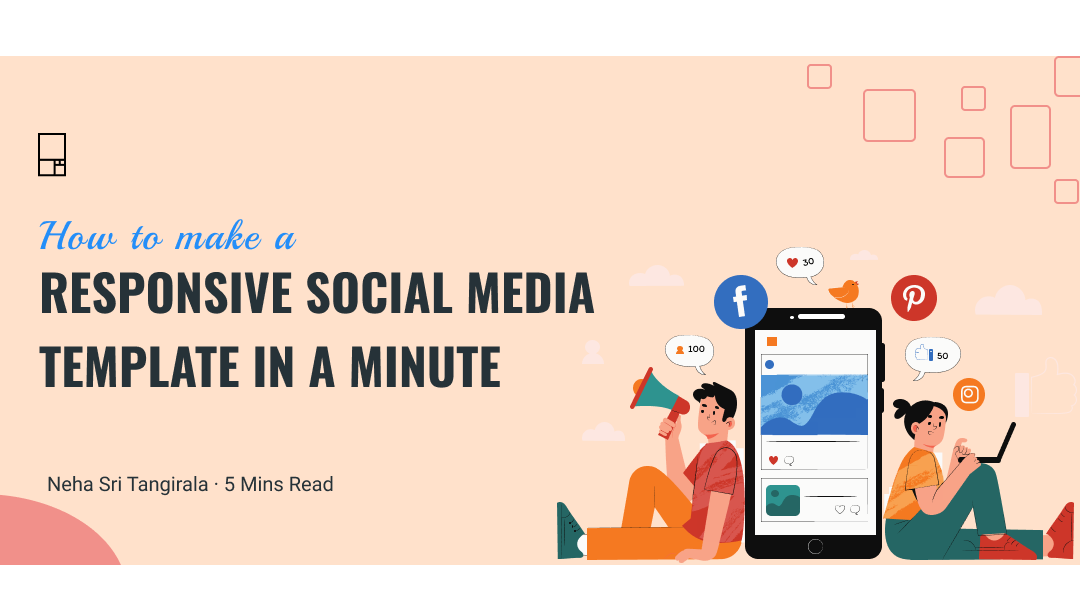Trust the process and connect the dots- My Design Journey
“You can’t connect the dots looking forward; you can only connect them looking backwards. So, you have to trust that the dots will somehow connect in your future.” - Steve Jobs
When asked to write a blog by my mentor, I was pretty confused about which topic to pick. The design team was supposed to pick a design topic they would like to share the knowledge that they have learned so far in their career. I enjoy reading and listening to people's life experiences, perspectives on things, and how those experiences shaped them personally and professionally. So, I decided to write a blog about some vital incidents in my life that led to my growth and helped me thrive.
Here are some of my key takeaways & my building blocks so far as a Designer. When I connected all these learnings, it helped me reveal a bigger picture! Yes, I have learned from the best!
- Gain Broader Perspective & Knowledge
Have you ever heard of the proverb 'the frog in the well, who knows nothing of the sea'? Well, that was me when I started my undergrad course, I was not much aware of the vast possibilities of different fields. I realized my aptitude a bit later when I stepped outside my comfort zone and interacted with people. While doing an undergrad in engineering, I got exposed to the world of design and its many opportunities. I was working for one of the sororities that publish the annual magazine for my college. I am forever grateful to my seniors who took me in & shared their wisdom & experiences with me. They gave me a push to switch to design. They saw what I couldn't see in me then.
Therefore, I feel early career talks, mentoring, and exposure to jobs are valuable, they help students to make informed decisions about their future career paths. Because they are formed early, therefore, result in traditional stereotypes.
- Inspiration Matters
Some designers have always inspired me to do better. What amazed me when I started my journey was that when I reached out to some of them on social media, they took the time to reply & guide me! That's what I love about the Design community, people who have been there will always guide you. These people gave me the confidence to pursue design when I was in doubt.
So, talk to people in the field you want to be in. And I can’t stress this enough. How others perceive design will help you to expand your vision on the subject.
Some of my all-time inspirations are listed below, they inspire me in so many ways:
https://www.supernovadesign.net/
https://pranitakocharekar.com/blog/
https://www.instagram.com/shuklagarima/?hl=en
- Building a Portfolio that Reflects your Personality
I was preparing for the design entrance exam so I joined a 2-month course to get some knowledge about the field. I was the only student in my class with no design background or experience whatsoever. It was pretty intimidating to see how amazing the students were with their sketching to come up with ideas, they were brilliant! That was an eye-opener for me to reflect on my strengths and weaknesses.
You do not need to be good at everything. Knowing your voice is important. We all are wired differently and it is up to us to recognize our capabilities and how we function. It is more about how we can push ourselves further with what we are good at and how to build and develop in what we lack.
Reflect on things that come naturally to you those are your biggest strengths and it's equally important to know your weaknesses as well so that they don't hold you back from becoming a better version of yourself.
Try this test to know your personality better: https://www.16personalities.com/free-personality-test
- Learning Something New Fuels our Creativity
Last year, one day I was scrolling through my Netflix suggestion list, I usually stick to my rom-com & murder mysteries but that day this one docuseries called 'Cheer' grabbed my attention. I simply started watching it and ended up binge-watching it for 6 hours in a row! This show opened me to the world of cheerleading I didn't know is a legit sport, to begin with. I am glad I watched something about a new discipline, it taught me the importance of some traits like self-accountability and ownership in whatever you do.
Ideas can come from making connections between seemingly unrelated things. Learning about something new can expand your perspective and help you manage your work in new ways. So be open to new experiences. It will help you with ideas and problem-solving in new ways.
Check out these exercises to help you improve your creativity
https://www.indeed.com/career-advice/career-development/creativity-exercise
- Structure and the Craft of Finishing Your Ideas
The long tiring days & nights before the project submission for Jury Day were tough & crazy during my design course. I still don't know how I made it for all 8 quarters. I think the only thing that got me through was showing up every single day even if it is in the tiniest form.
When you finish an idea there is always a gap between how you imagined it to be and how it actually turned out in the end. Some people give up in between because the gap is huge. But the thought is to constantly learn and improve to fill that gap. It's normal to look up at your very first design one day and cringe about it (I do it all the time!).
Taking feedback and asking questions are two important parts of the process of filling the gap between the idea and the final product, these are the ways to achieve positive results.
Another thing that plays a huge role in finishing your ideas is ‘Structure’. I had no routine or structure for my work when I was in college. I used to work at random hours, and eat at random hours just like every other student. I realized the importance of a routine and structure at my job. Remember how our mothers have always tried to build good habits for us from eating to sleeping on time? Well, that is structure!
We can’t be motivated 24*7, so in order to finish a task what gets you through is having a structure. It keeps you moving forward.
- Adaptability and Flexibility: When it was my first time doing things, the following helped me through:
- Kill your first design - Every time we used to come up with a possible solution for a design brief in college, we were asked to scrap it off and come up with a new one. One of the best pieces of advice that I've got from one of the teachers at my college is to never go with the first solution that popped into your head. Once you let go of the first idea, you will push yourself to ask more questions and think more while solving a problem. It results to come up with better solutions and perspectives.
- Learn the art of listening - Have you ever felt that someone has truly listened to you? It puts you at ease and calms your overwhelming feelings. Listening to people is one of the most important skills to have. Be it your client stories or listening to what your colleagues have to say about your ideas, effective listening will take you a long way.
- Put yourself under the spotlight: I was doing great working with a team and my mentor; one day to my surprise, my supervisor put me on a project where I was the only designer with no additional design support, which meant I had to talk to the client on my own and take care of all the requirements. That was new and my instant thought was I don't have the confidence for this. But he gave me a little push saying only when you are put under the actual circumstances you will perform and grow. That was a huge turning point for me as his words changed my perspective and made me go for things that I never did before. I failed at some but still, the learnings were great.
- Network a lot: Almost two years back when I took a break from working and started again to look for a gig, it was tough as I was not connected to too many people in the industry to help me out. Being part of the same community will help you exchange knowledge, you will meet a lot of amazing people, that will help you learn a lot about the industry, and land with great opportunities.
- Humanizing Experiences
Every time I talk to any customer care executive to assist me with any issue whether it is a food order complaint or a baggage inquiry with the airlines, no matter how different my inquiry is they all speak in the same tone. Sometimes I feel it's the same voice too.
I find them speaking the same language, which is more robot and less human. I wonder if you are talking to them in person will they still use the same tone?
At the end of the day, we are all humans and not robots, we should approach a problem and give solutions that are humanized. It should connect to people strongly who are out there using our products. Empathy plays a big role in this, simply observing things from the end user's perspective. Not only in your professional learning but in your personal development as well!

Thanks for reading this far! Have you connected your dots lately? Do let me know your reflections on how far they have brought you.



